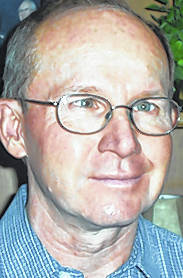“The invisible hand?” It sounded like something that you would see in an old scary sci-fi movie, or a creature from one of those Scooby Doo cartoons I loved as a kid, and kids still love today. But the phrase was from a book authored by an economist, whose writings had influenced much of the American economy for years.
Adam Smith, born in Scotland in the 1700’s, was an economist and philosopher. He is considered the father of capitalism. Capitalism is based on the concept that free-market ideals are most productive and beneficial to countries and societies. Smith’s book, “The Wealth of Nations,” is considered the foundation for modern day economics, and has been called “the bible of capitalism.”
In his book, “Free Lunch,” David Cay Johnston writes about the Scottish economist. He writes, “It was Smith who showed us that pursuit of self-interest, far more than selfless acts of charity, promotes the general welfare. In making the most of one’s labors, Smith said, individual enterprise, as if guided by an invisible hand, unintentionally benefits all mankind.” Smith’s theory is that individuals working the best way they can for themselves, but in the right way, will ultimately benefit everyone.
But what is the invisible hand? In Adam Smith’s day, he probably thought it meant “do unto others as you would have them do unto you.” In other words, the Golden Rule helps determine what is that right way. There was a moral standard at that time and if you operated according to that standard, everyone, including yourself, would benefit.
But Smith also knew that there would be those who would not choose to do so. Johnston writes, “Among the father of capitalism’s lesser known but equally significant insights is what he wrote about the eagerness of business owners to make even more profits by thwarting the invisible hand. He warned that unchecked self-interest, especially aided by government will spoil the benefits of capitalism.” Adam Smith believed that in an economy based on capitalism, government should make sure that everyone plays fair. Other than that, government should stay out of the way.
Capitalism is an economic system that rewards individual initiative and hard work, and is guided by moral standards, with little government involvement. So, are we living in a country, whose economy is based on Adam Smith’s capitalism? Or is it something else?
It sure looks like something else. Profit and loss for businesses and corporations often now depend upon government, rather than themselves. Rules and regulations are written to their benefit, or to their expense. Tax breaks and loop holes are sometimes more valued than efficiency and product quality. Subsidies from government are sought rather than sales. Ultimately, all these perks come out of the pockets of taxpayers.
Businesses, corporations and trade associations have learned that government is where the money is. The number of lobbyists in Washington seeking benefits for their clients has doubled since 2000. It is estimated that there are now around 15,000 lobbyists roaming the halls of government, making the cocktail party scene, and doing whatever necessary to bring home the bacon for their clients. No wonder five of the ten richest counties in America surround Washington, D.C.
But it’s not just in the nation’s capital. Corporations pit one state against another in bidding wars for that new plant or headquarters. For example, Apple just received nearly a billion dollars in state and local tax breaks to build their high tech research campus in the Research Triangle Park. Everyone is calling it a win for North Carolina.
But it’s a win that will have to be paid for by the taxpayers, those not getting the benefits of American “capitalism.”
It is also happening on a local level, in city and county government. Just this week, Amazon announced that it is opening a distribution facility in neighboring Johnston County. Amazon is receiving a $5 million in tax incentives to build the facility there, which will eventually provide over 500 jobs to the local economy. It is argued that the incentives are necessary to compete for jobs. But is it fair to taxpayers, who have to pay more in taxes because of the special subsidies handed out? And is it fair to established businesses that did not get those special favors?
Often you will hear a politician or commentator complain that American economy and American capitalism is in jeopardy of being overtaken by socialism. But it looks to me like we are pretty much already there.
Mac McPhail, raised in Sampson County, lives in Clinton and can be reached at [email protected].

